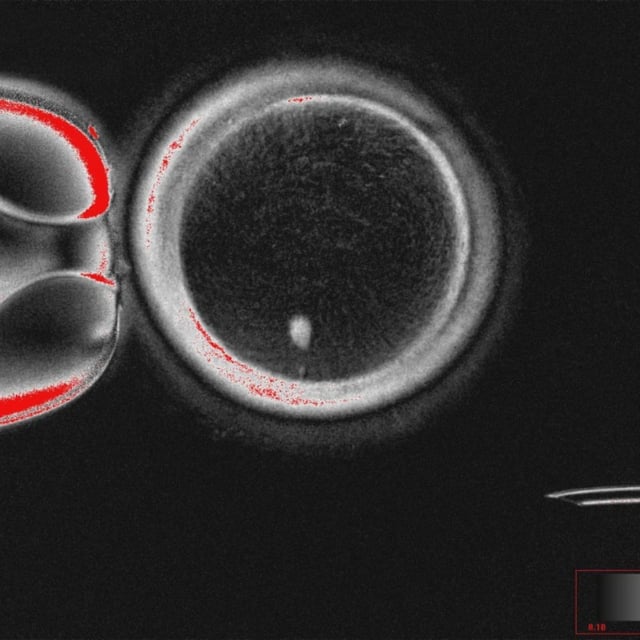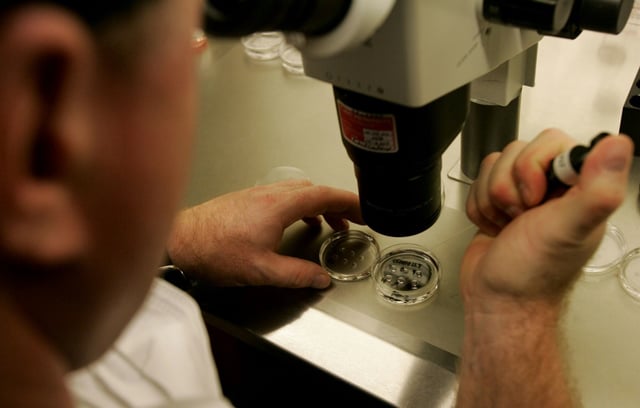Overview
- Researchers led by Shoukhrat Mitalipov at Oregon Health & Science University reported the results in Nature Communications on Tuesday.
- The approach used somatic cell nuclear transfer into enucleated donor eggs followed by a chromosome-reduction step to yield haploid, egg-like cells.
- The team produced 82 maturing reconstructed oocytes and performed IVF; fewer than 9% of resulting embryos reached the day‑6 blastocyst stage before culture was stopped.
- Embryos showed widespread chromosomal abnormalities and mosaicism, and the reconstructed oocytes exhibited no meiotic recombination, highlighting reprogramming concerns.
- Authors and outside experts cite potential future uses for infertility and same‑sex parenting, while stressing the work is years from clinical application and constrained by legal and ethical limits.

